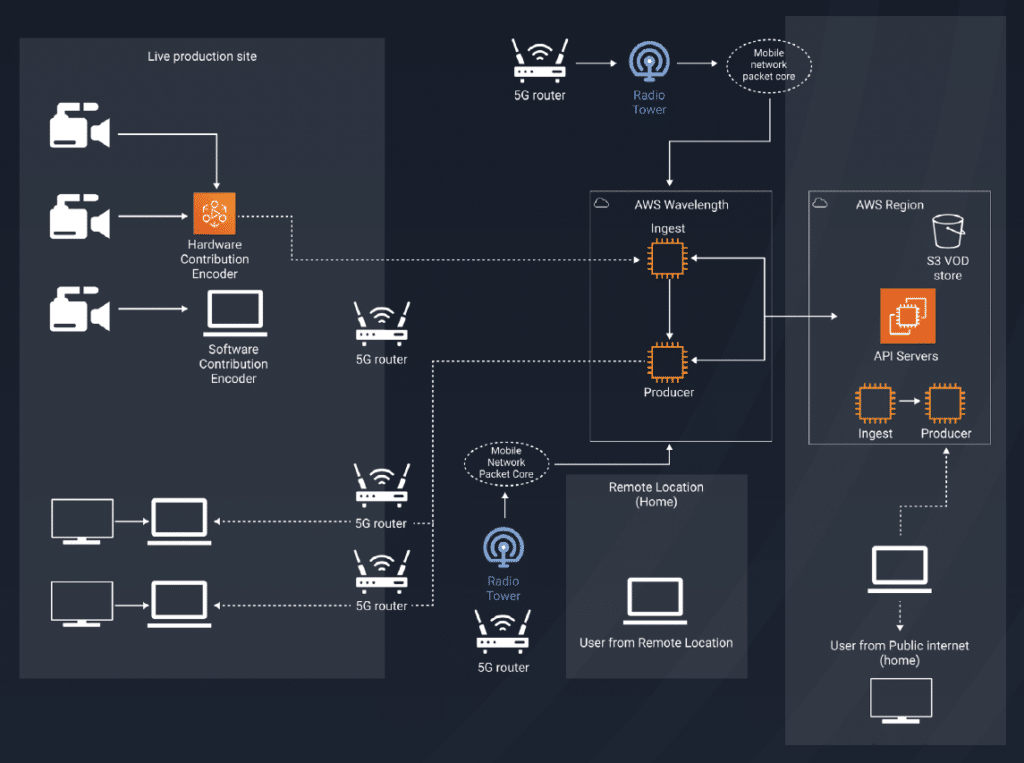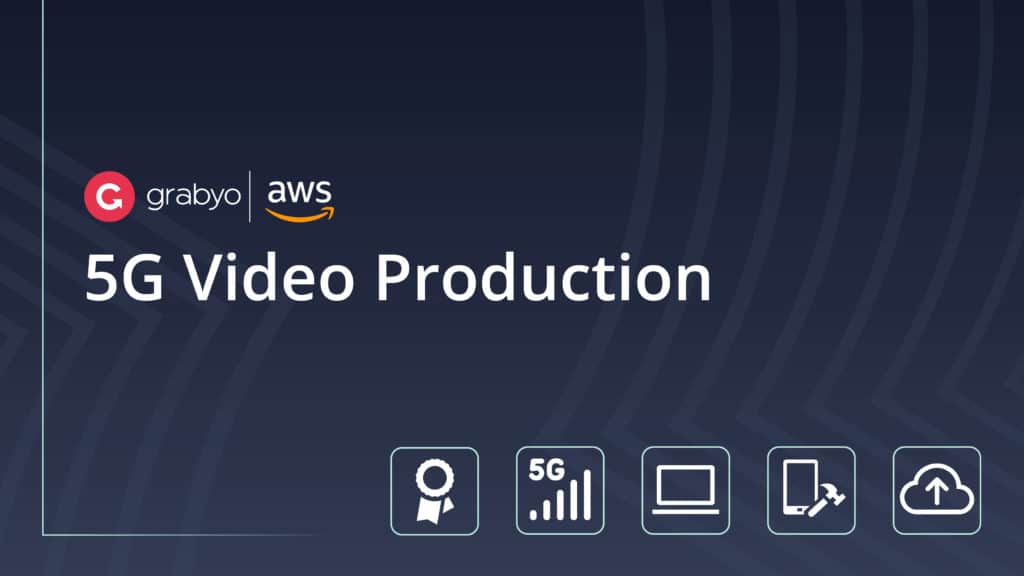Grabyo uses AWS to power 5G live production using AWS Wavelength
Using AWS Wavelength and 5G technology, we have built a successful public preview of a complete remote live video production solution powered by 5G technology. You can read our full report here.
Our workflow demonstrates how 5G and edge computing can provide a flexible, remote and multi-location production experience that rivals traditional on-premise and remote production (REMI) tools.
5G production using mobile networks
The workflow was tested in both London and New York using 5G networks provided by Vodafone and Verizon respectively, and operated across two different AWS Wavelength Zones. AWS Wavelength brings AWS compute and storage services to the edge of 5G wireless networks.
At the source location, HD cameras and video encoders were connected to 5G routers, which provided the contribution feeds directly to an AWS Wavelength Zone. Grabyo Producer, our cloud production system, was provisioned within the AWS Wavelength Zone to receive ultra low-latency video signals and provide live production capabilities such as camera switching, vision mixing and audio mixing in real time at the edge of the network.

5G live production in the cloud
Production crew members, using just a laptop and a web browser, connected to the Grabyo Producer Control Room, allowing them to collaborate from multiple locations in real-time to produce the live event in ultra-low latency.
During the tests, the companies witnessed 5G bandwidth speeds of up to 240 Mbps download and 45 Mbps upload, and a round-trip latency as low as 9ms. These results provided a dramatic uplift in speed when compared to its 4G counterparts.
Unlike traditional live video production, this setup offers significant flexibility. It allows production crews to work from remote locations in a collaborative environment, whilst reducing the latency associated with cloud production utilising AWS Wavelength. Cloud production removes the need for much of the traditional hardware, infrastructure and human resource needed on site for live production, whilst 5G connectivity allows for free roam of cameras and capture sites.
The findings from the preview indicate that once 5G is available everywhere it will allow ultra-low latency video transport and production without cables, directly from 5G cameras to vision mixing and live production in the cloud.

In the future, 5G for live video production will allow broadcasters and media companies to increase the mobility and flexibility of production teams, reducing the reliance on high-cost, fixed fiber or satellite connections, without the trade-off in quality and cost.
With a reliable, remote working infrastructure in place using 5G and the cloud, reducing the amount of air, road and rail travel will also help to significantly reduce the carbon footprint for video production.
This concept work is a significant step forward for cloud-based video production as 5G networks continue to roll out in major markets across Europe, North America and Asia.
“At Grabyo we are on a mission to deliver broadcast-grade production tools in the cloud, and this project has shown the true potential of cloud production services in replacing traditional hardware and on-premise equipment. We have taken a big step towards that future and we are excited about the developments with AWS Wavelength and 5G video production that will become an important part of the video industry in the coming years.”
Mun Wai Kong, Grabyo CTO
You can download the full report here.
Related blogs
Stay in touch.
Join over 10,000 media professionals and register to receive our monthly newsletter directly to your inbox!

















































